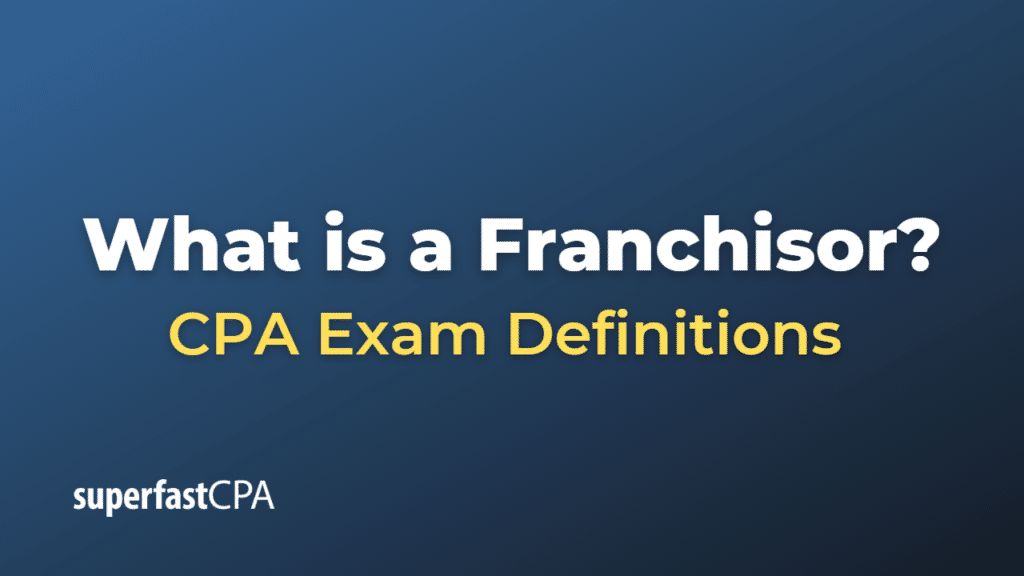Franchisor
A franchisor is a company that owns a specific business model and brand, which it allows others (known as franchisees) to use, typically in exchange for an initial fee and ongoing royalties. Franchisors sell licenses that grant the franchisee the right to use the franchisor’s trademarked business name, logo, and proprietary products or services.
For example, McDonald’s Corporation is a franchisor. When someone wants to open a McDonald’s restaurant, they become a franchisee by purchasing a franchise license from McDonald’s Corporation. They are then granted the right to operate a business under the McDonald’s brand, using McDonald’s recognized business processes and selling McDonald’s products.
Franchisors typically provide a range of support to their franchisees. This can include:
- Training: Franchisors often provide initial and ongoing training to franchisees and their staff, teaching them how to operate the business according to the franchisor’s standards.
- Operations Manual: The franchisor usually provides a detailed manual of operating procedures to guide the franchisee in running the business. This can cover everything from how to prepare the products or deliver the services, to how to manage the finances, to how to market the business locally.
- Marketing Support: Franchisors often conduct national or regional advertising campaigns to promote the brand. They may also provide assistance to franchisees in developing and executing local marketing strategies.
- Supply Chain: Many franchisors arrange supply deals or even provide products directly to their franchisees, ensuring that all outlets offer consistent quality and pricing.
- Business Development: Franchisors often assist with site selection for new outlets and may provide guidance or resources for business expansion.
The franchisor-franchisee relationship is typically defined by a franchise agreement, a legal contract that outlines the rights and responsibilities of both parties. It’s essential for both franchisors and franchisees to understand this agreement thoroughly, as it governs their business relationship.
Example of a Franchisor
Let’s take the example of Dunkin’ Donuts, a popular global franchisor.
Dunkin’ Donuts, the franchisor, owns the rights to the brand, recipes, and operating procedures that make the company successful. When an individual or company wants to open a Dunkin’ Donuts location, they can’t just do so on their own. They need to enter into a franchise agreement with Dunkin’ Donuts.
As the franchisor, Dunkin’ Donuts charges an initial franchise fee (which can vary but typically ranges into the tens of thousands of dollars, depending on the location and market size). In exchange, the franchisee gets the right to open and operate a Dunkin’ Donuts store.
However, it doesn’t stop at the initial franchise fee. The franchisee must also invest in the physical location, equipment, and inventory necessary to open and operate the store. They are also usually required to meet certain financial criteria to demonstrate that they can sustain the business in its early stages.
Once the store is up and running, the franchisee continues to pay Dunkin’ Donuts a royalty fee, usually a percentage of the store’s gross sales, as specified in the franchise agreement.
In return for these payments, Dunkin’ Donuts provides ongoing support to the franchisee. This can include training, operational guidance, marketing support, and access to approved suppliers. Dunkin’ Donuts also ensures the brand’s integrity by setting and enforcing quality standards across all its locations.
So, in this example, Dunkin’ Donuts is the franchisor, providing the business model, brand, and ongoing support, while the individual or company running the individual location is the franchisee, who operates the day-to-day business in line with the franchisor’s guidelines.













